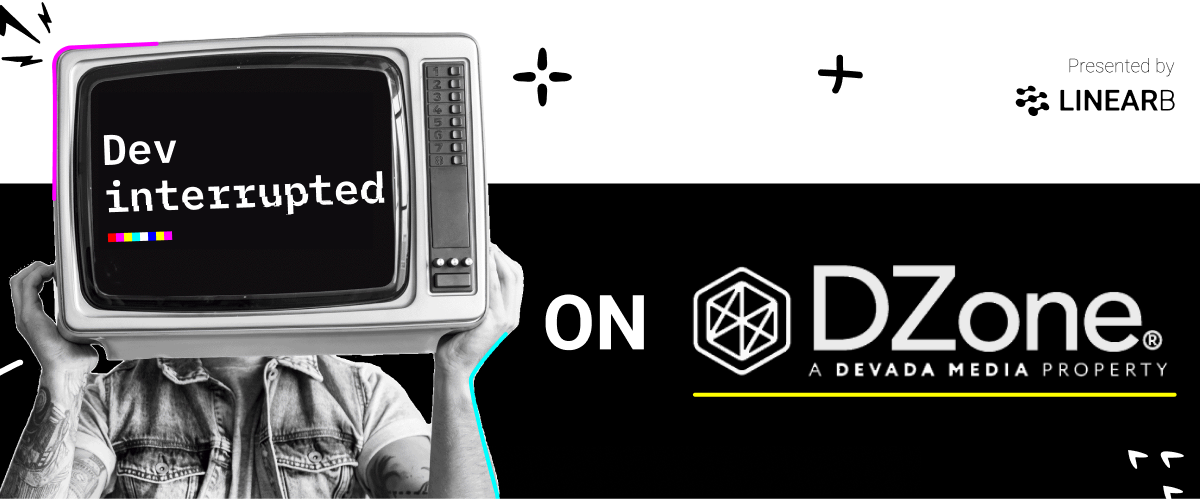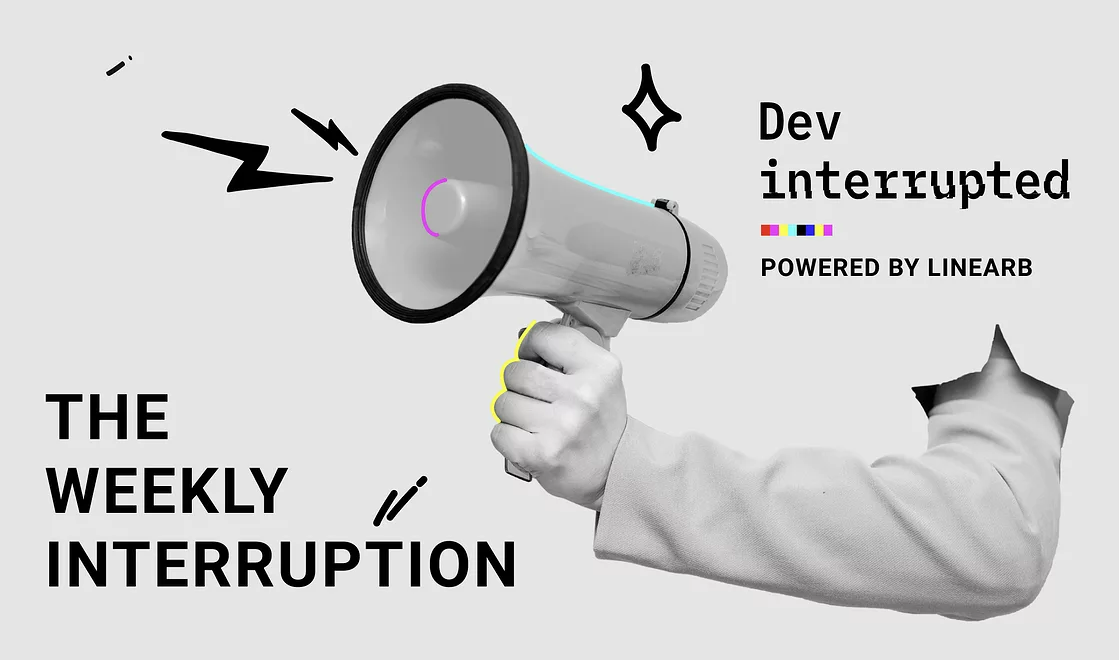The Promise of Platform Engineering
Live from Interact, Charity Majors joins Dev Interrupted to discuss hierarchy and platform engineering
Join the DZone community and get the full member experience.
Join For FreeLive from Interact, we're bringing you an interview with our favorite CTO, Charity Majors.
Never one to be shy about speaking her mind, Charity is an outspoken advocate for devs everywhere — and this passion made her a fan favorite at Interact.
 Listen as Charity discusses her career, why the hierarchy is bullshit (disclaimer: she likes to swear — we like that about her), and why platform engineering is the most exciting place to sit in computing today.
Listen as Charity discusses her career, why the hierarchy is bullshit (disclaimer: she likes to swear — we like that about her), and why platform engineering is the most exciting place to sit in computing today.
Episode Highlights Include:
- (3:05) Charity's career journey
- (9:25) Why the hierarchy is bullshit
- (13:37) The future of ops is platform engineering
- (20:08) How to build an amazing platform engineering team
- (24:51) Movement around developer experience (DX)
- (35:03) 15 minutes or bust
- (41:57) Routing pull requests with gitStream
Episode Excerpt:
Dan: What is going on in Charity's world right now? What are you thinking about? What are you writing about? What's important?
Charity: Hmm. Yeah. Well, the piece that I just wrote was about why the hierarchy is bullshit and bad for business. Not, like, hierarchy isn't all bad. Like, it is the dominant way that we organize our lives, so it can't be all bad, right? There are lots of great things about hierarchy. It makes it easy for large numbers of people to collaborate with very low cognitive overhead, and it's a great way to distribute big problems into like actionable things and everything, but the problem is like when we associate dominance with it and status with it. And then, like, that's how workplaces become this like place where you just go to take orders, and nobody is motivated by that, right? We're all motivated by autonomy, mastery, and meeting, right? And hierarchy, so like my article was just proposing that we treat it like a data structure. It's just a neutral thing. If you're below or above whatever, it doesn't mean you're better or worse. You know, some of the people who I admire most in the world are people who have, say, ascended that ladder to like VP or whatever, and then gone, "This doesn't make me happy. I want to go back to being a manager. I want to go back to being an engineer. I want to maybe go back and forth." Like taking that voluntary step down to the hierarchy, it really means mastering the ego because egos really, they hate that loss of status. But if you can do it in a voluntary way, there's so much power in it. And it's contagious, right? In the same way that acts with dominance are kind of contagious and they lead to all this one-upping and like status symbol-ing, somebody taking a conscious step down and really owning that is also contagious, and I feel like it can spread throughout an organization in ways that make people go, "Oh, I am not trapped in this treadmill. I can make choices about my life. I can pay attention to what makes me feel fulfilled and satisfied and go in that direction." And I think we're just starting to see the real crest of it. I think the whole engineer-manager pendulum was kind of the first step in that direction. And I think you're gonna see a lot more of that. 'Cause, there are a lot of very, very unhappy people out here in a field where that shouldn't be necessary, right? Engineering and building things and technology can be such a creative, fascinating, fulfilling pastime that you get paid for; you get paid a lot for it, right? If we just, you know, have a little bit more agency and intention in how we choose what we actually do.
Dan: Yeah. It's almost like the hero's journey of a developer or an engineer.
Charity: Right?
Dan: There is certainly a pressure to ascend, I guess, as you were calling it.
Charity: Yeah.
Dan: And that's through a hierarchy ladder. But it would be cool to see, yeah.
Charity: The thing about working as a creative person is that, at worst, there should be two ladders to climb, right? One of them is upwards in the formal hierarchy and one that is, you know, continuing to build things but getting better and better at building things, right? Creative and technical people got into this 'cause we love being creative and/or technical, right? And ascending it that way doesn't always map to an org chart, and that's fine.
Dan: Yeah. Exactly. Actually, that brings up a lot of, and we could probably do a whole pod just on that, but a lot of interesting thoughts about, 'cause you were saying build things, like how amazing are you at creation? There should be a ladder of ascension that has to do with your creations.
Charity: Organizations don't exist for management. They exist because of the people who are doing the work. Like, I feel like even just visualizing the ladder or the hierarchy inverted is a really healthy exercise because, you know, that it's not managers who got top bossing people or acting like victors. You're underneath; you're supporting them, right? Like how do people do you support on your tree? That's so much healthier way to like envision things, I think.
Additional Video and About Interact
Engineering Insights before anyone else...
The Weekly Interruption is a newsletter designed for engineering leaders by engineering leaders. We get it. You're busy. So are we. That's why our newsletter is light, informative, and oftentimes irreverent. No BS or fluff. Each week we deliver actionable advice to help make you - whether you're a CTO, VP of Engineering, team lead, or IC — a better leader.
It's also the best way to stay up-to-date on all things Dev Interrupted — from our podcast to trending articles, Interact & our community Discord.

Opinions expressed by DZone contributors are their own.

Comments